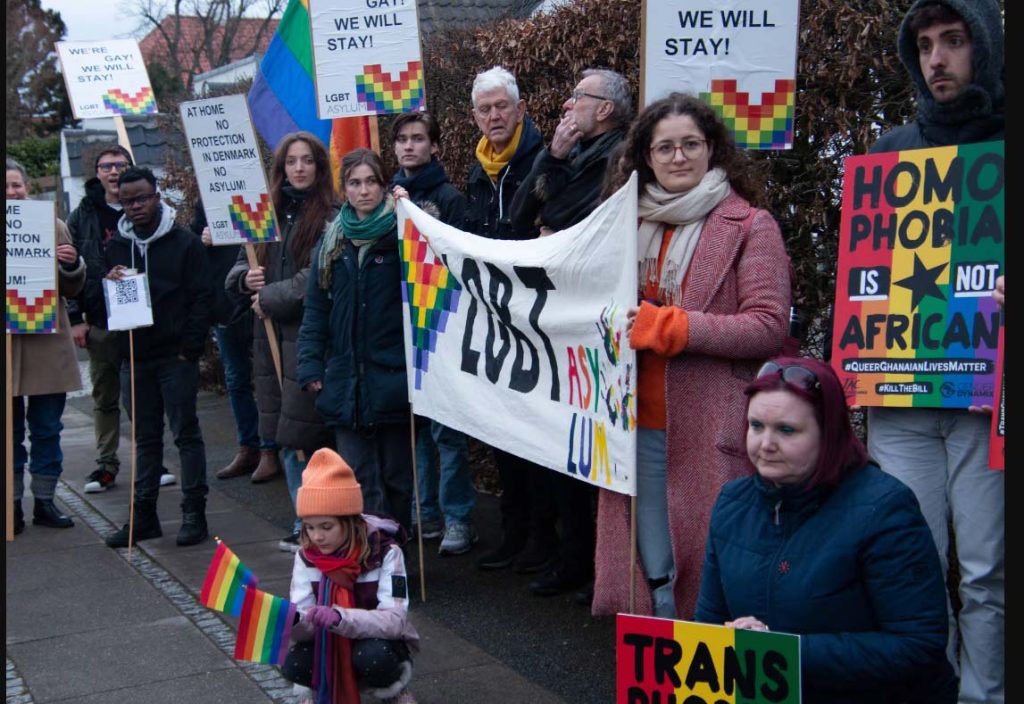The Dire Consequences of Ghana’s Controversial Anti-LGBTQ+ Bill

Introduction
The recent approval of a new bill in Ghana targeting LGBTQ+ individuals has sparked outrage and fear among the community and its allies. Kofi, a 25-year-old survivor of a homophobic attack, describes the bill as a death sentence, reflecting the widespread concern over its implications. This legislation, known as the Human Sexual Rights and Family Values Bill, has raised significant questions about Ghana’s commitment to human rights and democracy. Amidst international condemnation and domestic challenges, the fate of LGBTQ+ rights in Ghana hangs in the balance.
Background: The Controversial Bill
The Human Sexual Rights and Family Values Bill, passed by Ghana’s Parliament on February 28th, has drawn condemnation from various quarters for its strict and repressive measures targeting LGBTQ+ individuals. Penalties include up to three years in prison for LGBTQ+ identification and advocacy, extending to professionals such as journalists, teachers, lawyers, and doctors. The bill criminalizes public displays of affection between same-sex couples, transgender expression, and the dissemination of LGBTQ+ content online and in traditional media. Additionally, it prohibits non-heterosexual individuals from adopting children, further marginalizing LGBTQ+ communities.
International Response and Diplomatic Pressure
The passage of the bill has triggered a wave of opposition from human rights advocates, academics, civil society members, the diplomatic community, and international partners. Similar to Uganda’s experience, which faced sanctions after enacting severe anti-LGBTQ+ legislation, Ghana risks economic repercussions and damage to its international reputation. The United States Ambassador to Ghana, Virginia Palmer, voiced concern over the bill’s infringement on fundamental human rights and warned of its adverse effects on Ghana’s economy and global standing. The United Nations High Commissioner for Human Rights, Volker Türk, labeled the bill corrosive and urged the Ghanaian government to ensure a life free from violence and discrimination for all individuals, regardless of sexual orientation or identity.
Legal Challenges and Presidential Response
Amidst mounting opposition, activists like Amanda Odoi have filed legal challenges against the bill in Ghana’s Supreme Court, seeking to block presidential approval. Private attorney Richard Dela Sky has also challenged the bill’s constitutionality, citing procedural irregularities in its passage. President Nana Akufo-Addo, acknowledging international concern, deferred his decision on the bill’s approval pending the Supreme Court’s rulings on these legal challenges. However, his administration faces pressure to uphold Ghana’s human rights commitments amidst growing domestic and international scrutiny.
Escalating Violence Against LGBTQ+ Individuals
The passage of the bill has intensified violence against LGBTQ+ individuals in Ghana, exacerbating an already hostile environment. Recent years have seen a surge in attacks, including physical assault, extortion, detention, and even murder. These incidents, coupled with societal stigma and fear of reprisal, create a climate of fear and insecurity for LGBTQ+ individuals. The new legislation threatens to further marginalize and endanger an already vulnerable community, undermining Ghana’s democratic principles and human rights record.
Economic and Public Health Implications
Beyond its human rights implications, the bill poses significant economic and public health challenges for Ghana. The potential loss of international aid and investment due to sanctions could strain Ghana’s economy, already grappling with fiscal deficits and external debt. Economist Daniel Amateye Anim warns of adverse effects on investor confidence and foreign direct investment, leading to currency depreciation and economic instability. Moreover, the bill jeopardizes Ghana’s progress in combating HIV/AIDS, as it hampers efforts to provide inclusive healthcare and support services to LGBTQ+ individuals.
Conclusion: Upholding Human Rights in Ghana
In conclusion, Ghana’s controversial anti-LGBTQ+ bill represents a critical juncture for the country’s commitment to human rights and democracy. The international community’s response, legal challenges, and public outcry underscore the importance of upholding the rights and dignity of all individuals, regardless of sexual orientation or identity. As Ghana awaits the Supreme Court’s rulings and the president’s decision on the bill, the future of LGBTQ+ rights in the country hangs in the balance. Only through concerted efforts to challenge discrimination, promote inclusivity, and safeguard human rights can Ghana fulfill its democratic aspirations and global obligations.
